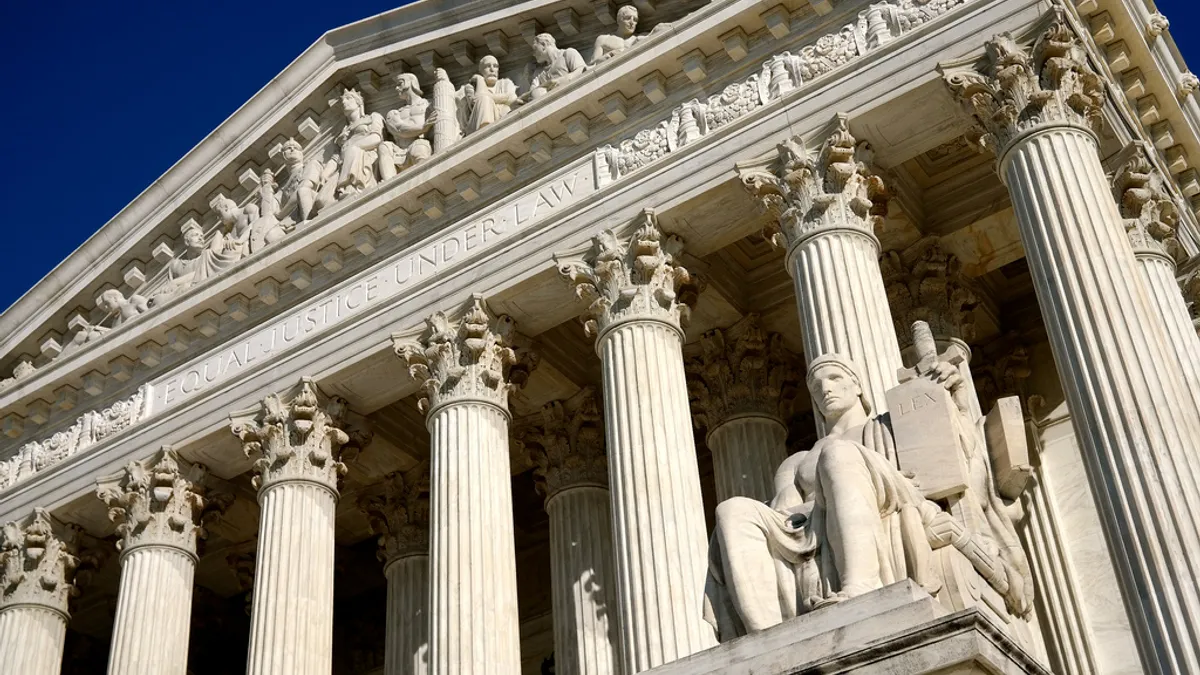Dive Brief:
-
In a unanimous decision, the U.S. Supreme Court on Wednesday nixed a New York state law that prohibits merchants from charging fees to shoppers who use credit cards, returning the case back to the New York-based 2nd U.S. Circuit Court of Appeals to determine a verdict predicated on free speech, not price regulation.
-
Retailers that challenged the law contend it violates First Amendment free speech rights; the lower court rejected that argument, saying the practice of credit card fees influences behavior rather than speech. New York’s law, which imposes jail and fines to retailers imposing such fees, is similar to ones in nine other states; the U.S. Supreme Court didn’t hear similar cases involving comparable laws in Florida and Texas.
-
Retailers hailed the ruling: "The Court's ruling affirms the right of retailers to communicate honestly with their customers about the true cost of credit cards,” Deborah White, senior executive vice president and general counsel of the Retail Industry Leaders Association, said in a statement. “In so doing, the Court also recognized that it is the credit card companies, not the merchants, that are responsible for the higher prices in this context.”
Dive Insight:
At issue in this case are the swipe fees that credit and debit card issuers impose on every payment, which retailers argue are ultimately passed on to their customers in the form of higher prices. Presumably, the ability to directly (rather than indirectly) pass on fees at checkout would aid retailers in keeping overall prices lower, or at least discourage shoppers from using those cards.
It’s a major issue for retailers, one that has kept them at odds with credit card companies and banks for years. In its ruling, the Supreme Court attested that the New York law, contrary to the lower court’s opinion, does indeed improperly impede on the First Amendment. "In regulating the communication of prices rather than the prices themselves, Section 518 [of the New York law] regulates speech,” according to Wednesday's Supreme Court opinion, as cited by RILA.
"Each time one of their customers pays with a credit card, these merchants must pay some transaction fee to the company that issued the credit card,” the opinion adds. “The fee is generally 2 to 3 percent of the purchase price. Those fees add up, and the merchants allege that they pay tens of thousands of dollars every year to credit card companies. Rather than increase prices across the board to absorb those costs, the merchants want to pass the fees along only to their customers who choose to use credit cards. They also want to make clear that they are not the bad guys — that the credit card companies, not the merchants, are responsible for the higher prices."
The Supreme Court's ruling frees retailers to tell consumers about the added costs of credit card payments. RILA and other retail trade associations had filed an amicus brief in the case “urging the Court to recognize the importance of transparent merchant communication to consumers about credit cards costs,” according to a RILA press release. Retailers have called credit and debit card acceptance “a prime example of a nonfunctioning marketplace,” and are pushing Congress to maintain and even strengthen card fee rules that are part of the Wall Street Reform and Consumer Protection Act that arose after the recent Great Recession.















